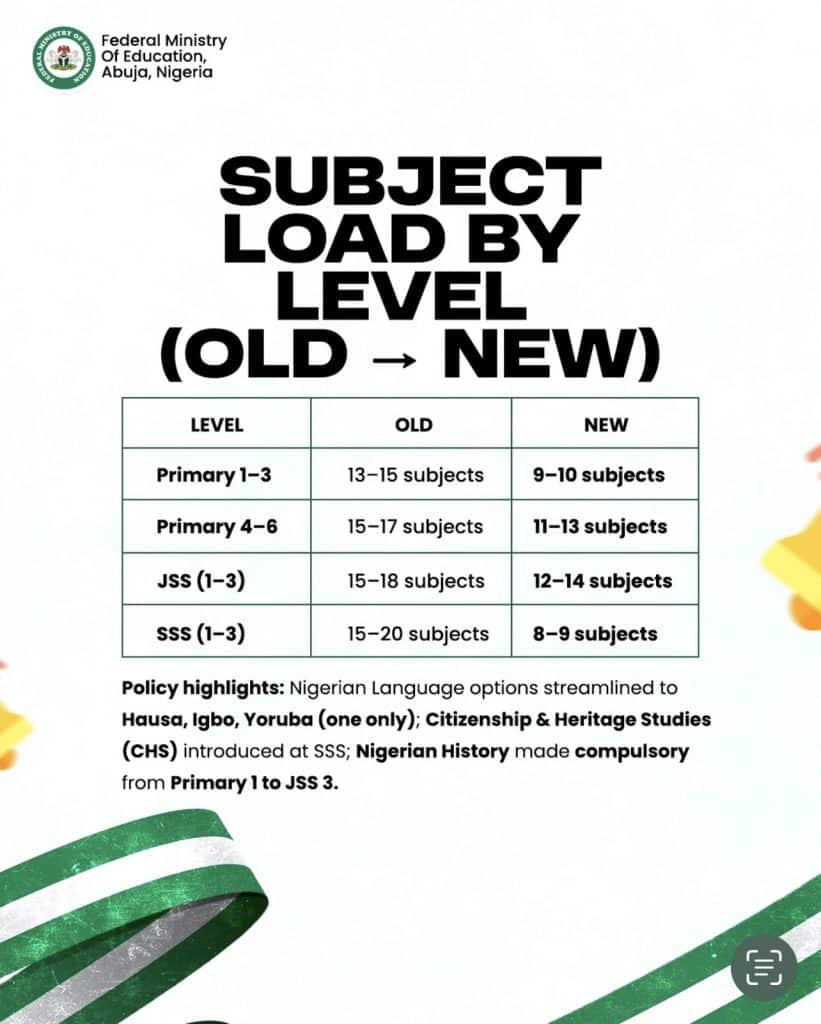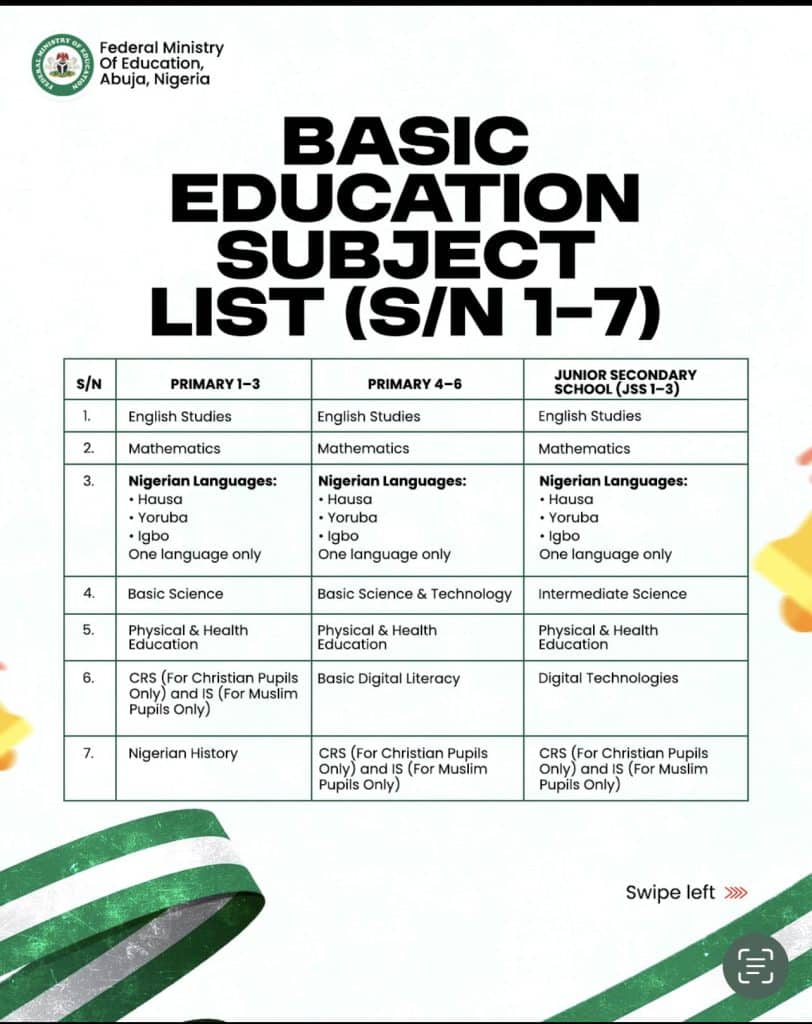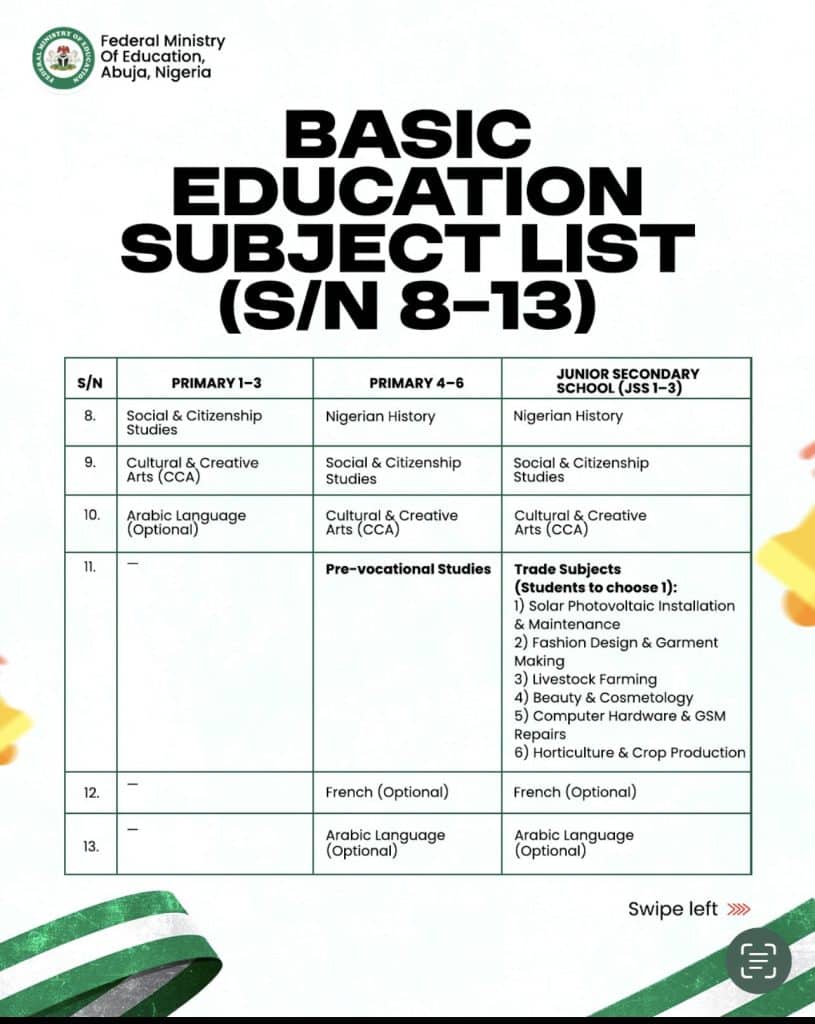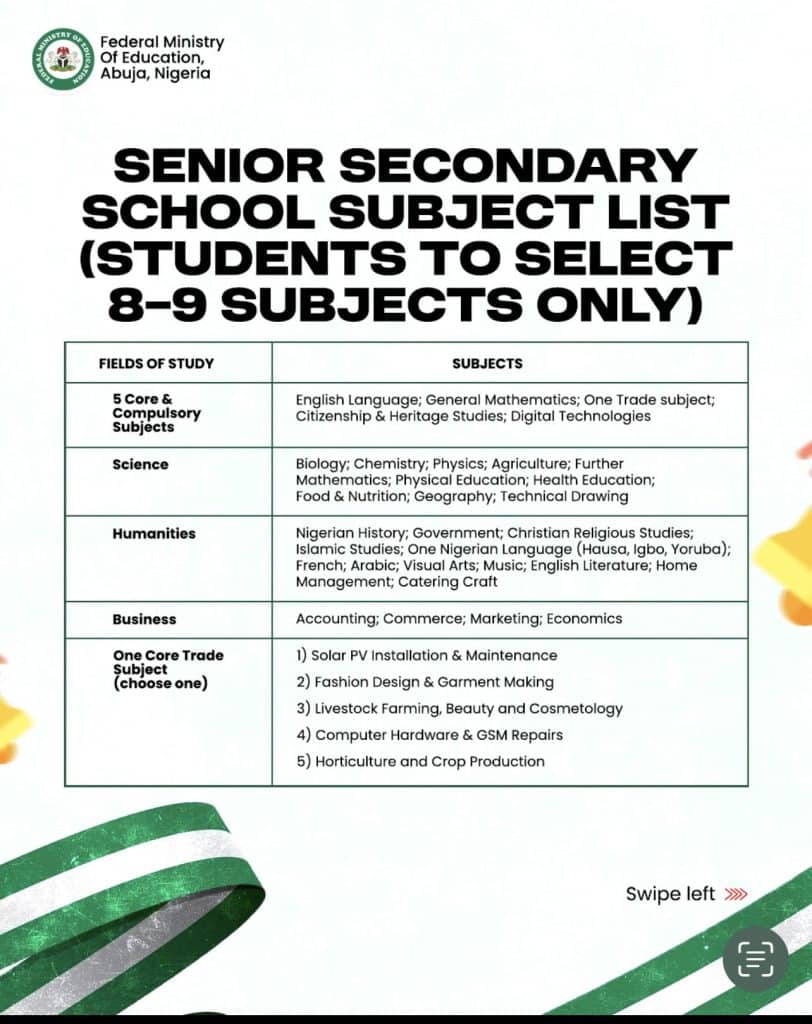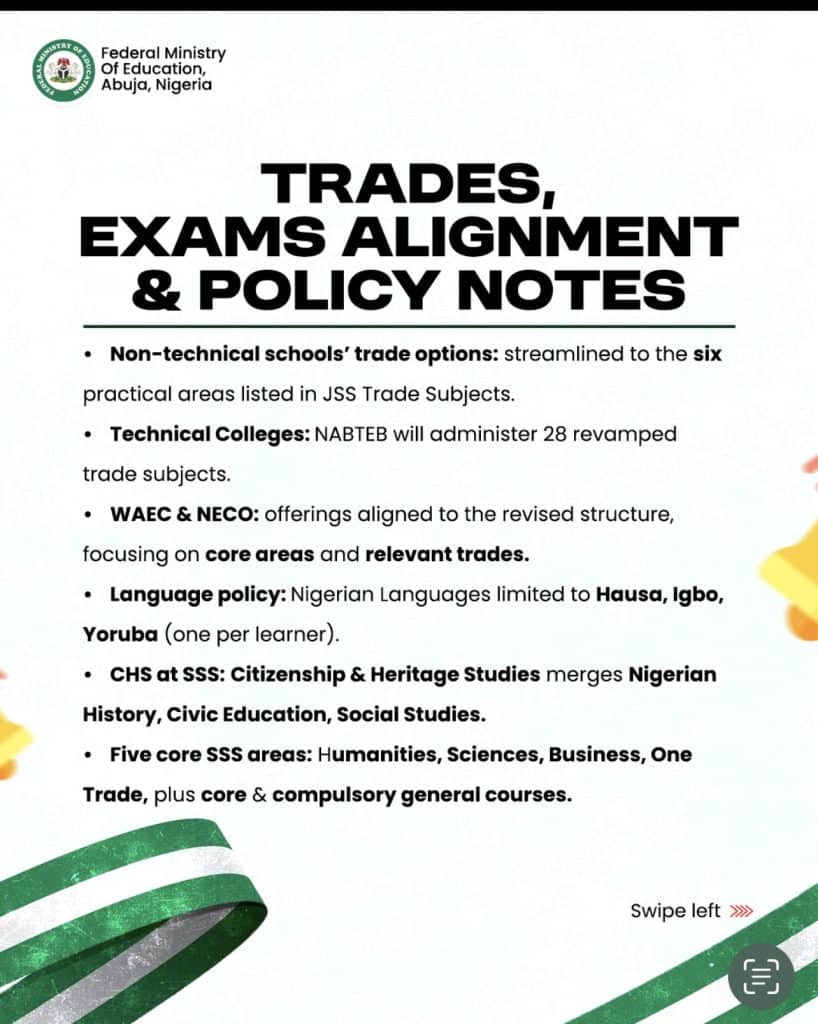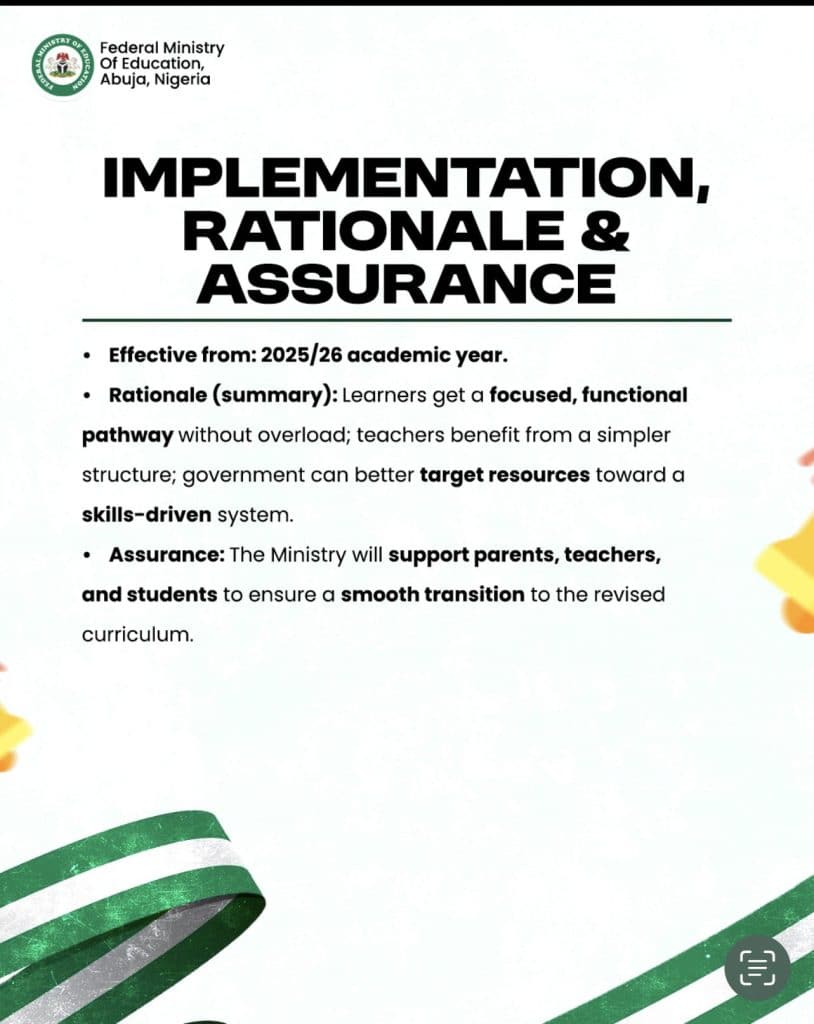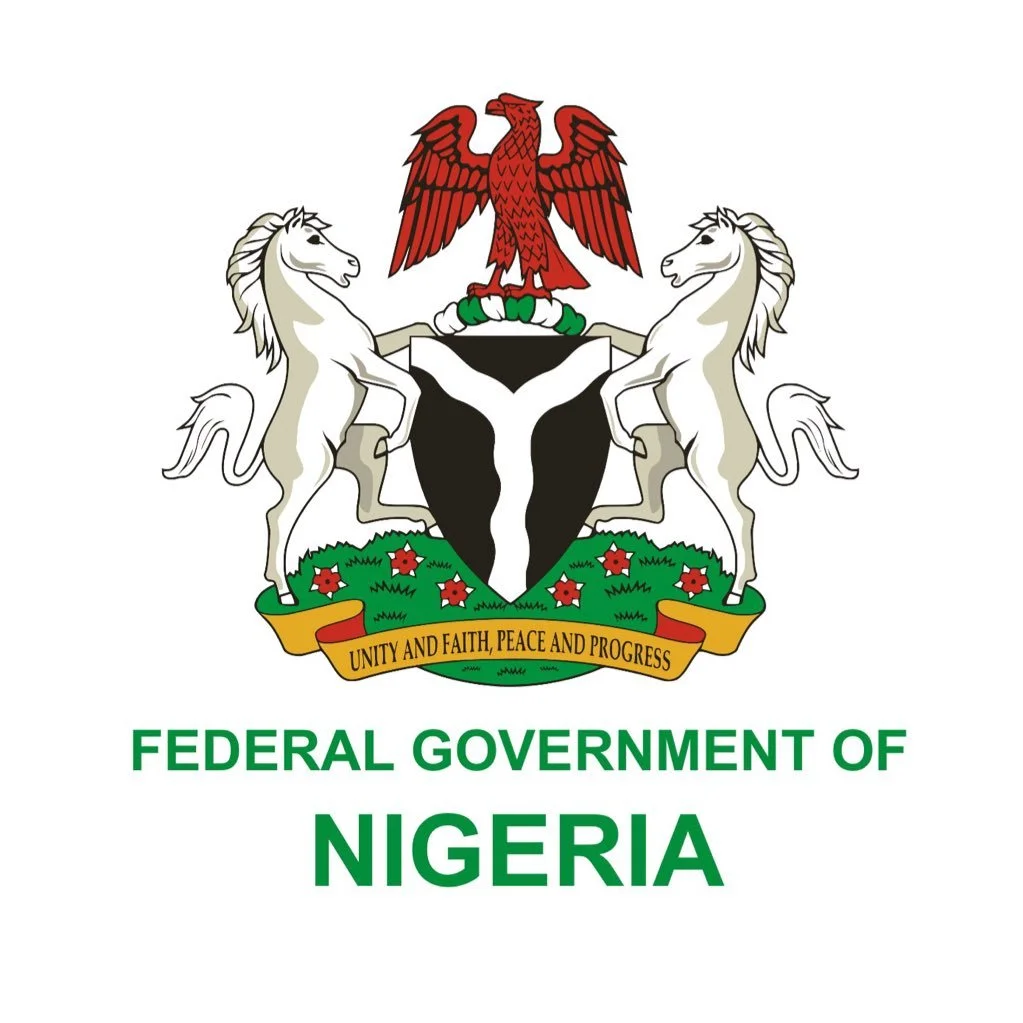FG has unveiled new curriculum for Primary and Secondary Schools.
NewsOnline Nigeria reports that the Federal Government has rolled out a revised curriculum for Nigeria’s basic and senior secondary education system, introducing new subjects aimed at reducing overload, boosting skill acquisition, and aligning the nation’s learning structure with global standards.
The announcement was made on Tuesday by the Minister of Education, Dr. Tunji Alausa, and the Minister of State for Education, Prof. Suwaiba Ahmad. According to them, the reform followed extensive consultations with stakeholders, including the Nigerian Educational Research and Development Council (NERDC), WAEC, NECO, NBTE, NABTEB, and other education bodies.
ALSO: Tinubu Begins Search for Successor to INEC Chairman Mahmood Yakubu
Primary School Subjects
-
Primary 1–3: Pupils will take 9–10 subjects, including English Studies, Mathematics, one Nigerian Language, Basic Science, Physical and Health Education, Nigerian History, Social and Citizenship Studies, Cultural and Creative Arts, and either Christian Religious Studies or Islamic Studies. Arabic remains optional.
-
Primary 4–6: The load increases to 11–13 subjects, with the introduction of Basic Digital Literacy, Pre-vocational Studies, and French as an optional subject.
Junior Secondary School (JSS 1–3):
Students will now take 12–14 subjects, including new courses such as Digital Technologies, Business Studies, and a compulsory trade subject. Trade options include Solar Photovoltaic Installation, Fashion Design, Livestock Farming, Beauty and Cosmetology, Computer Hardware and GSM Repairs, and Horticulture.
Senior Secondary School (SS 1–3):
Five subjects are now compulsory: English Language, General Mathematics, one trade subject, Citizenship and Heritage Studies, and Digital Technologies. Students will then select electives from a wide pool across science, arts, business, and technical fields. Options include Physics, Chemistry, Biology, Government, Literature, Accounting, Visual Arts, Catering Craft, and Horticulture.
The Ministry stressed that the new structure is designed to foster practical knowledge, digital literacy, and entrepreneurial skills among Nigerian students while easing subject overload at all levels.
